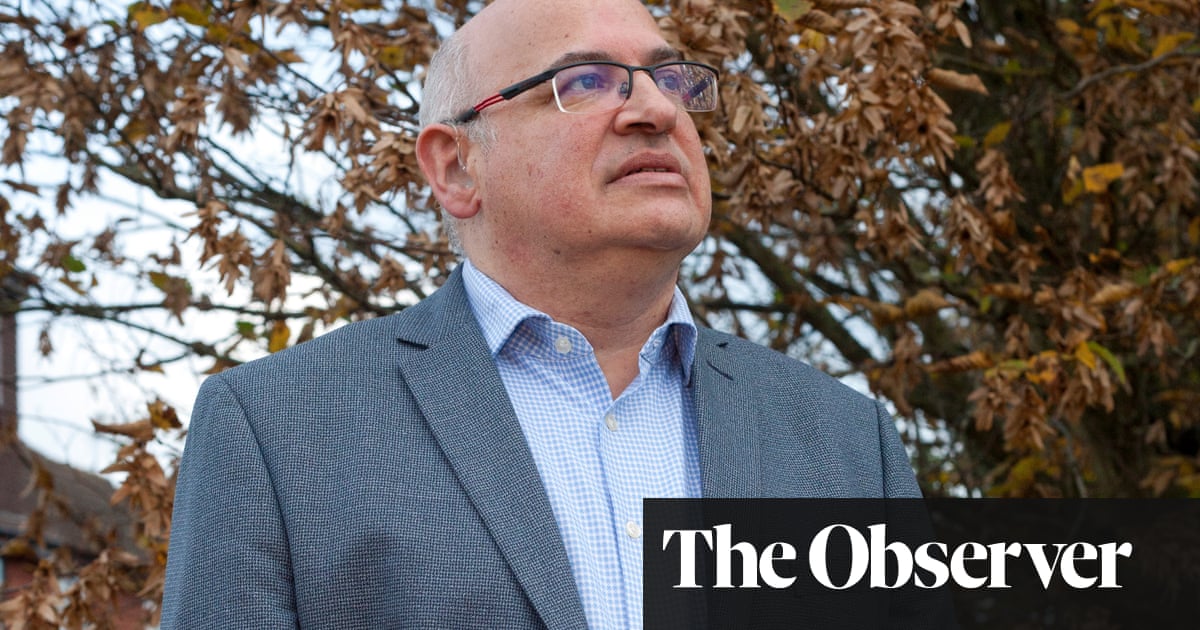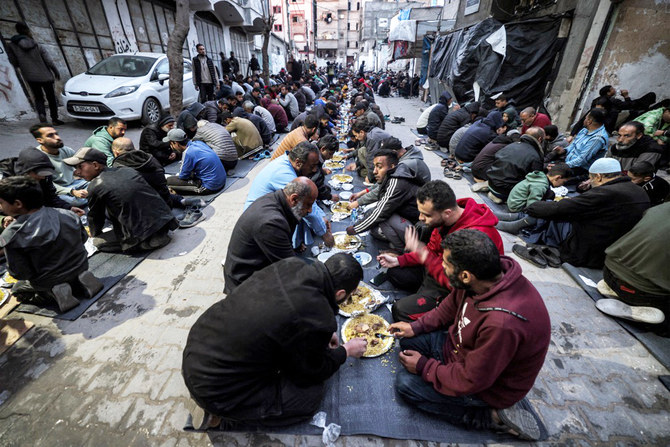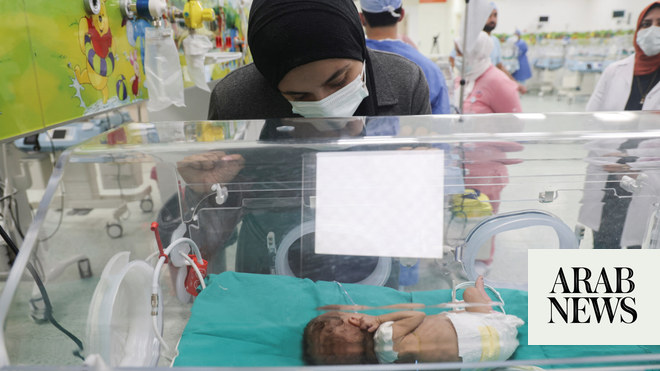
Amid the noise and the fury surrounding the Israel-Hamas war, some places are unexpectedly quiet.
“I’ve got friends, dear friends of 30 years standing,” said Charlie. They are scattered across the world, and stay in touch online, through platforms including WhatsApp.
“We’ve got one friend who is going off. And the rest of us are just standing back. It’s literal silence on a group that’s normally very, very prepared to dive in on issues.”
Charlie is a pseudonym, because this silence is the manifestation of fear. “You think, if I say something then you go down the worst kind of rabbit hole,” they said. “It’s so hard, because it seems a greater crime, what’s happening in Gaza. Yet what Hamas did and have promised they will continue to do is appalling. I think everyone is trying to find a safe place to land and so a lot of people are not saying anything.”
Charlie’s parents came to England from Ireland. “It all makes me think of what I faced as a child during the Troubles.” They were viewed as West Brits to Irish relatives, and hid their Irishness at school. “My grandmother came over and I remember so vividly her and my dad having an absolute screaming match about the bombings in England. It was so unusual for them.”
Those kinds of divisions, among friends, family and colleagues, are being played out across the UK, a month after the Hamas attacks on 7 October, often with the help of private social media channels set up to talk about football or music or other parents. For every group like Charlie’s, where someone rails against Israel, the response from western governments and anti-Muslim incidents, there are others where people vent their anger at terrorists, people marching on Armistice Day and antisemitism.
For the silent, words are suppressed by the fear that using the wrong language will mean they are labelled as antisemitic or Islamophobic by people who assume that anyone opposing them must be acting in bad faith.
“If someone sees people saying what seem to be reasonable things, and witnesses reactions to them which are so powerful and so overwhelming, I completely understand people just want to shut up and sit their quietly till it blows over,” said Jeremy Ginges, a professor in behavioural science at the London School of Economics.
The alternative is to risk rejection, which can be psychologically devastating, yet silence is also challenging.
“What is happening in the Jewish left, especially the Israeli Jewish left, is that after the Hamas attacks they felt almost rejected by the mainstream left, who didn’t recognise their level of suffering,” he said.
“I’m talking mainly from a Jewish perspective, but I also have a lot of Arab and Muslim friends and colleagues, including Palestinians, and it’s worked exactly the same way for them feeling rejected from their professional communities somehow, because they’ve been silenced.
“We know that rejection is such a powerful motivator, and ostracism has such far-reaching psychological and behavioural consequences and negative consequences for relationships. The most important goal is I think to try and prevent those eruptions from occurring, and find ways to mediate these disagreements and stop them from from getting worse.”
Dr Blerina Këllezi, associate professor in social and trauma psychology at Nottingham Trent University, identified five key factors in how people manage conflicts with people close to them. How central is the issue to someone’s identity? What else is happening in their relationship? What is the perceived impact on their future? How are other people reacting? And are they trying to engage in dialogue?
“Families are key because you need people you trust when you discuss such critical and sensitive topics,” she said. “But the moment families are involved in disagreements, that’s when all the negative emotions can follow.”
Paula – another pseudonym – has always been close to her sister but finds herself now avoiding discussing the Israel-Hamas war. Her sister is a social worker in a mainly Muslim team, whereas Paula works for a company involved in Israel’s Iron Dome and has Jewish friends. Even though she objects to the bombing of Gaza, her sister’s views seem “strange”, she said.
“I feel I have to keep certain topics off the table, and I’ve never had that with her. I love my sister very, very much and we’ve always been very close. So I don’t want to fall out with her over something like this.”
Sophia is the name chosen by doctor at a hospital in northern England. She describes her mother as Catholic and father as an atheist Jew from east London, while her husband is a Muslim Palestinian from east Jerusalem with family in the West Bank. She is strongly pro-Palestinian, and has posted online about the ways she feels her husband is discriminated against in Israel as a Palestinian.
Bringing home her Palestinian boyfriend years ago made her father interrogate his own sense of Jewishness, she said, something he had generally ignored, along with the assumption, inherited from his mother, that “Israel was for the Jews”. Now father and daughter have similar views, but it is harder for her at work, where colleagues include doctors who are Israeli and Palestinian, and her fears for a colleague in Gaza whose house was bombed. “At the start of the conflict he had a little baby and I haven’t heard from them for a few days but if he’s still alive he might be three months old now. So it’s very personal and it’s very painful.”
For those who have already lost someone to the violence, cutting ties can be a form of self-preservation. Jeremy Freeman’s mother’s cousin was murdered in front of her young children during the Hamas attacks, and the content writer from Hertfordshire felt he was forced to cut ties with a client.
“We had a fantastic relationship, we used to laugh, we talked a lot, she was a good client,” he said. “But she kept putting up images – posting messages that I felt were borderline antisemitic. She didn’t mention the massacre by Hamas – it was very one-sided. No condemnation. It’s Hamas I object to, not the idea of Palestine as part of a two-state solution.”
They had a conversation, but Freeman felt too uncomfortable to work with her. “I’m by no means poor, but losing that money will do damage to me because I’m self-employed. So I didn’t take it lightly.”
Some of his relationships have become stronger – people have been supportive on social media – but Freeman said he was now scared and volunteers to help with security at his son’s Jewish school. For him, silence can feel like rejection.
“I have a lot of non-Jewish friends, and some of them are close friends, and they avoid the topic completely. Whether it’s because they feel they’re not educated, or uncomfortable about it I don’t know. But I wish they would reach out.”
Gilda Levy set up the Women’s Interfaith Network with her friend Pinky Lilani after the September 11 attacks, giving women of all faiths an opportunity to meet people from other communities.
“It’s become more important than ever because of the divisions that you can see every day,” Lady Levy said. “And the way communities are pulling apart from each other, which is horrendous, absolutely horrendous.” Some members have experienced anti-Muslim and antisemitic behaviour, but not from within the interfaith groups, she said. “I’ve only heard positive stuff from Muslim and Jewish members. I think they see Israeli children, they see Palestinian children, and it doesn’t matter whose children they are.”
Yet there are costs. “There are some people in my community I can’t talk to now,” she said. “I’m not on the same page as they are. So many people have said to me, not now but in the past, ‘interfaith is a complete waste of time – they don’t like us, they hate us’. It’s a very, very difficult time. If you want to keep any semblance of humanity, it’s a very difficult time.
“We need to be able to speak, to say how we feel, and not be shouted down.”












